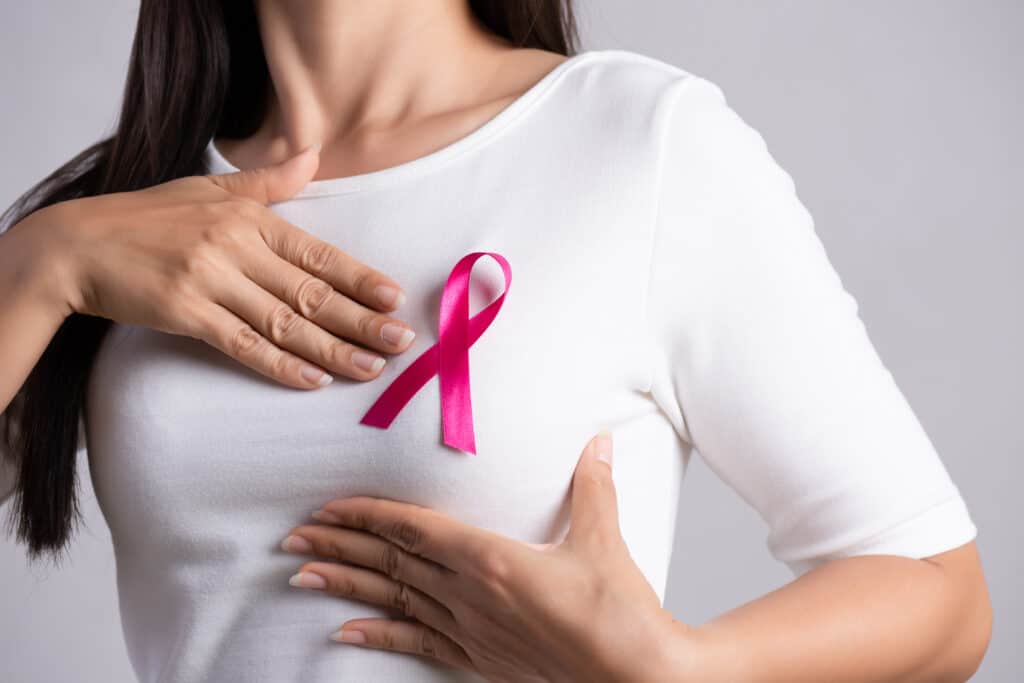With the aim of raising awareness about breast cancer, as well as early detection and appropriate treatment to increase survival and reduce the negative effects of this type of cancer, a disease that in recent years has affected millions of women in the world, this month of October is dedicated to awareness.
It was in 1988 when the World Health Organization (WHO) established October 19 as the world day against breast cancer, and according to figures from said organization, 1.38 million new cases are diagnosed each year, which represents a total of 458,000 deaths from this disease.
Only during 2021, breast cancer was the one with the highest incidence in the world. In the USA, it is the most common cancer in women (49,290 cases of female breast ductal carcinoma in situ and 101,280 cases of melanoma in situ were diagnosed in 2021).
What is breast cancer?
Breast cancer is a cancer that forms in the cells of the breast and can occur in both men and women, but is much more common in women, and occurs when some cells in the breast begin to grow abnormally.
These cells divide more rapidly than healthy cells and continue to accumulate, forming a lump or tumor. These cells can spread (metastasize) throughout the breast to lymph nodes or other parts of the body.
What are the main symptoms of breast cancer?
Among the most common symptoms that can be associated with breast cancer are:
- Lump or thickening in the breast that feels different from the surrounding tissue.
- Change in size, shape, or appearance of a breast.
- Changes in the skin over the breast, such as dimpling.
- Recent inversion of the nipple.
- Scaling, skin sloughing, crusting, and peeling of the pigmented area of skin around the nipple (areola) or the skin of the breast.
- Redness or small holes in the skin over the breast, similar to the skin of an orange.

Which are the risk factors?
- Advanced age.
- Personal history of breast diseases.
- Personal history of breast cancer.
- Family history of breast diseases.
- Inherited genes that increase the risk of breast cancer.
- Exposure to radiation.
- Obesity.
- Start menstruating at a young age (before the age of 12).
- Starting menopause at a later age.
- Having the first child at a later age.
- Women who have never been pregnant.
- Postmenopausal hormone therapy.
- Drink alcohol.
Prevention of breast cancer
Cancer can be detected early and even prevented by following healthy habits such as:
- Familiarize yourself with your breasts during a self-examination for breast awareness. This doesn’t prevent breast cancer, but it can help you better understand the changes your breasts are going through and identify any unusual signs or symptoms.
- Drink alcohol in moderation.
- Exercise most days of the week for at least 30 minutes.
- Limit postmenopausal hormone therapy.
- Keep a healthy weight.
- Opt for a healthy diet.
- No Smoking.
How to perform a breast self-examination
Monthly breast self-exams can help you detect changes that may be signs of infection or breast cancer (such as breast lumps or spots that feel different). When breast cancer is detected early, the chances for survival are much better.
A breast self-exam takes only a few minutes and can easily be built into your daily schedule. You can do a breast exam when you’re:
- Dressing for the day or undressing at night.
- Lying in bed in the morning or at bedtime.
- Taking a shower.

When should the doctor be consulted?
If you find a lump or other change in your breasts on self-examination, or if you’ve had abnormal results on any recent tests, make an appointment with your doctor.
Talk to your doctor about when to start breast cancer screening and tests, such as clinical breast exams and mammograms. Together you can decide which breast cancer screening strategies are best for you.
Take care of yourself!
Tenderness Health Care joins the breast cancer awareness initiative and invites you to share this information with all the women around you, in order to awaken the importance of taking care of themselves and preventing this dangerous disease.


